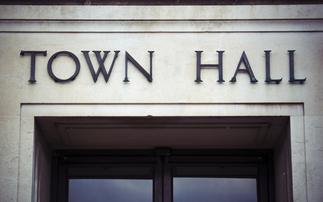Ministers arrive for high-level summit to thrash out contentious issues over the coming week
The Paris climate talks today enter their second phase amid a sense of optimism that a global deal could be struck at the weekend, despite slow progress and continued rows over finance.
Today marks the start of the "high-level segment" at Le Bourget, with ministers arriving to thrash out some of the more contentious aspects of the accord. They will base their negotiations on a 48-page draft document that was agreed by officials on Saturday.
The text is still widely-regarded as too long, but is more manageable than the hundreds of pages used at the 2009 Copenhagen talks, which marked the last attempt to deliver an international climate deal. Finance remains a key sticking point, after India, China and the G77 accused rich countries of trying to dodge their commitment to delivering $100bn per year by 2020 to help poor countries cope with the impact of climate change.
UK Energy and Climate Change Secretary Amber Rudd was yesterday appointed to a key role for the week by French Foreign Minister Laurent Fabius. As one of 14 facilitators, Rudd will lead work on pre-2020 climate action, excluding finance, alongside Gambia's environment minister Pa Ousman Jarju.
But the UK has been branded a hypocrite by some NGOs, for demanding action on climate change globally while cutting support for green measures at home. Craig Bennett of Friends of the Earth told the BBC that the Chancellor's policies "fly the opposite way to the low carbon route" that other countries are pursuing.
"There is a total mismatch between his policies and the warm words of David Cameron," he said. "The reality is that on energy policy the Chancellor is effectively Prime Minister already."
David Nussbaum, WWF-UK's chief executive, said the stakes remain high for the second week of talks. "Amber Rudd must show real leadership in solidarity with those countries already suffering from climate change," he said. "We need a fair, ambitious and transformational deal by Friday."
Business voice remains strong
Outside of the negotiations, businesses will continue to have a strong presence at COP21, with a number of high profile events both in Le Bourget and central Paris.
The UN's Caring for the Climate summit will feature representatives from businesses including Mars, Acciona, Siemens and L'Oreal, discussing issues such as carbon pricing and science-based target-setting, alongside US Secretary of State John Kerry and UN Secretary General Ban Ki-moon.
The Low Carbon Technology Partnerships initiative (LCTPi) will also unveil a set of green action plans developed by 153 companies and 70 partners, focusing on topics such as renewable energy, carbon capture and storage, buildings and forests
PwC analysis shows that if the ambitions are met, LCTPi could achieve 65 per cent of the emissions reductions necessary to stay under 2C, channel $5-10tr of investment into low carbon sectors, and create 20-45 million jobs worldwide.
Peter Bakker, president and chief executive of the World Council for Sustainable Development, which led the development of the LCTPi, said: "It's time to scale up. Neither business nor government can solve the climate challenge alone. We must work together - across sectors, across countries, across borders and boundaries, in order to make the progress that is so urgently needed."
Meanwhile, a major new paper by researchers at the UK's University of East Anglia today is expected to show that global carbon emissions stalled, despite economic growth, suggesting greenhouse gases may have peaked. The figures are likely to be welcomed as further evidence that economic growth and climate action can go hand in hand.
Forestry
Yesterday, hundreds of delegates gathered in central Paris for the Global Landscapes Forum, where the leader of 17 million indigenous Indonesian people, called on negotiators to reinsert a mention of human rights into the draft.
"You cannot protect the forest from Paris, Oslo or New York," said Abdon Nababan, Secretary General of the Indigenous Peoples Alliance of the Archipelago. "Only those of use who are protecting it already can continue to do so."
A new report unveiled at the Forum showed 20 per cent of the carbon in tropical forests is located on indigenous lands and research has previously shown that good land rights in a country translate into healthier forests.
Meanwhile, forestry giant Asia Pulp and Paper (APP) launched two initiatives aimed at ending deforestation, including a landscape management framework for the South Sumatra region, which could eventually be scaled up across the country. APP also launched a direct funding platform called the Belantra Foundation with seed funding to finance forest conservation in Indonesia.
But with just five days left before countries are expected to reach a deal, the clock is ticking and ministers now must start to make serious compromises on key issues if they are to do a deal on Friday.
This article is part of BusinessGreen's Road to Paris hub, hosted in association with PwC.







